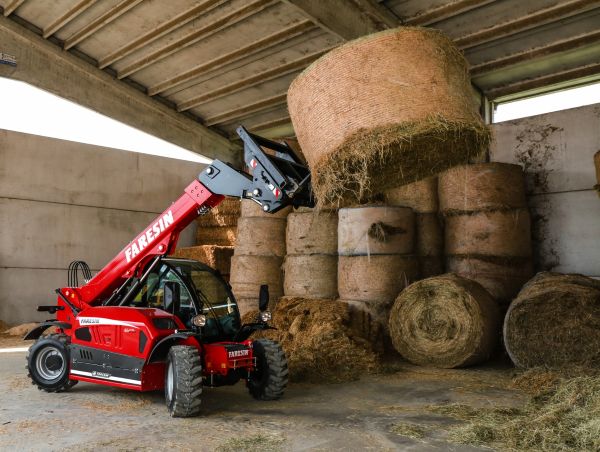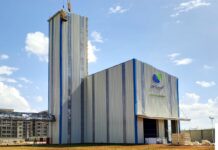In a sector where productivity and reliability are paramount, South African farmers are increasingly turning to multipurpose machinery to meet growing demands. Among these, telehandlers—particularly the Faresin range—are fast becoming essential assets on farms across the country.
Designed for agriculture, built for versatility
Although originally favoured in construction and mining, Faresin telehandlers are proving especially effective in agriculture. Their compact design and improved ground clearance allows them to operate in tight spaces like barns and narrow farm roads, while their robust build and versatile attachments enables them to handle the rigours of harsh environments, whether lifting heavy seed bags, stacking bales, or cleaning feedlots.
“These machines are engineered to serve multiple industries, which means they’re not only tough but adaptable,” explains Alistair Bennett, Managing Director of SkyJacks, official distributor of Faresin in Southern Africa. “For farmers, that means fewer machines doing more work across the property.”
Faresin telehandlers are compatible with a wide range of attachments; from bale clamps, sorting grapples, ladles with hydraulic openings and grain buckets in agriculture, to jib booms and winches in construction, rugged buckets in mining and sweeper for industrial applications. This flexibility allows one machine to perform tasks that would typically require several specialised vehicles, making them ideal for farms looking to streamline operations.
Safety and control at the forefront
Operator safety is a key concern across all heavy-duty sectors. Faresin telehandlers are equipped with industry-standard ROPS (Roll-Over Protective Structure) and FOPS (Falling Object Protective Structure), along with an additional front protection grill and an air-conditioned Queen Cab that offers 360-degree visibility and full control of all operating and safety systems.
“Safety and comfort shouldn’t be trade-offs,” says Bennett. “With full visibility, reinforced cab protection, and boom lights for low-light conditions, operators have complete control—even during early morning or late evening shifts.”
Precision handling is enabled through highly sensitive and accurate boom controls, ideal for delicate tasks or navigating confined workspaces. A hydrostatic drive system ensures smooth and responsive handling, precise steering options, seamless acceleration and deceleration, and better fuel efficiency; important considerations for farmers working long hours across large properties.
Driving cost efficiency through smart design
Fuel efficiency, lower maintenance requirements, and the ability to reduce the number of machines needed on-site all contribute to better cost control, something South African farmers are under constant pressure to achieve.
“The challenge our customers face is to reduce costs while increasing productivity and safety,” says Bennett. “The Faresin telehandler, with its multi-attachment capability and durable design, is a smart investment toward that goal.” SkyJacks backs this up with 24/7 technical support and annual renewable service and maintenance agreements, helping customers keep their equipment in top condition while they focus on day-to-day operations.
“In agriculture and other heavy-duty sectors, downtime is more than an inconvenience, it’s a financial loss,” notes Bennett. “By working with trusted OEMs like Faresin, we’re helping ensure equipment reliability where it matters most.”
Attachments that make the difference
What sets the Faresin range apart is the thoughtful integration of attachments tailored to specific industries. In agriculture, tools like grain buckets, bale clamps, forks and manure forks enhance productivity and reduce manual labour. In construction, the same base machine can be fitted with lifting jibs or winches for accurate material placement. In mining, lifting hooks and reinforced buckets meet the demand for heavy-duty transport.
This attachment ecosystem enables the telehandler to function as a true multifunctional tool, reducing the need to invest in separate machines for each task and helping improve overall site efficiency and safety.
Mechanisation for the future of farming
The growing use of telehandlers marks a broader shift in the agricultural sector, from reliance on labour-intensive methods to a more mechanised, scalable approach. These machines not only enhance productivity but also ease the physical burden on workers and contribute to safer, more controlled working conditions.
“Farmers today have to wear many hats,” says Bennett. “With a telehandler, they’re equipped with a machine that does the same, lifting, loading, feeding, transporting. It’s a practical solution to a complex operational challenge.”
As the demands on South Africa’s agricultural sector continue to grow, the role of reliable, adaptable, and safe machinery like the Faresin telehandler will only become more critical in helping farms remain competitive and sustainable.








